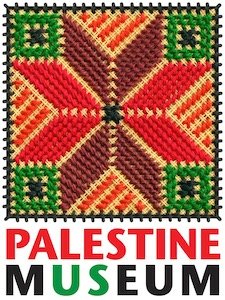Imagining a day without water – and living it
If you want to know just how bad the water situation is in the US, have a look at some of the results of the nine month investigation into our water supply conducted last year by the UK Guardian.
The news gets ever worse. As drought sets a 122-year record in the western states, Flint’s position as poster child for lead contamination in Michigan is being challenged by the city of Benton Harbor.
Back in 2018, this Michigan community, which is 85% Black, was revealed to have a level of lead in its water supply surpassing that in Flint, and nothing was done about it for three years. As with so much else, racial fault lines determine who gets access to clean water.
It is against this background that the US Water Alliance is holding its 7th annual ‘Imagine a Day Without Water’ event on October 21.
Describing itself as ‘the hub for the One Water movement’ the US Water Alliance is working with various public utilities, private companies, and non profits to transform water management in America, and aim for a future ‘where all water is valued.’ To get there, it is mounting a ‘Value of Water Campaign’ to build the public and private will for massive water infrastructure investment.
Its website is worth a visit. It includes research, resources, and policy recommendations, and features projects being undertaken by ‘cross-sector partnerships’ around the country to (among many other things) improve water quality, deal with stormwater and sewer overflow problems, protect and renew rivers, and help low income neighborhoods deal with water and sewer bills.
I could find no mention on the site that ‘water is a human right,’ but ‘water equity’ - defined as ‘just or fair inclusion’ – does make an appearance.
What happens when water is a ‘value’ – but not a human right?
There are plenty of places in the US where people don’t have to ‘imagine a day without water’ – they have lived it.
One of them is Detroit, another majority Black city in Michigan, where in 2014 the Detroit Water and Sewage Department terminated water service to over 20,000 residents for lack of payment of bills.
One Detroit official saw depriving residents of water as a useful way to force them to relocate, clearing areas of the city for ‘development.’
The country that has perfected the use of water as a weapon to force displacement gets $3.8 billion in US tax dollars every year. The share paid by Michigan taxpayers is more than $95,000,000 annually, funds that could be used to subsidize spiraling water rates and improve an ailing water infrastructure.
Instead these funds are used to subsidize Israel’s 55-year-long military occupation and ongoing expropriation of Palestinian land. Palestinians have no need to imagine a day without water, as the absence or dearth of clean water is a condition they are forced to build their lives around.
The Report of the UN High Commissioner for Human Rights on the allocation of water in the West Bank, East Jerusalem and Gaza Strip which was issued on Sept. 23, 2021 makes painful reading.
To cite a few of its findings:
• While half a million settlers in the West Bank enjoy their swimming pools and are amply supplied with water from confiscated Palestinian springs and West Bank aquifers controlled by Israel, 660,000 Palestinians have limited access to water, and 420,000 consume less than half of the 100 litres per capita per day recommended by the World Health Organization.
• Israeli soldiers and settlers destroyed 84 Palestinian water installations (pipes, cisterns, tanks, wells, sanitation facilities) in 2020 and 40 more so far in 2021. The price Palestinians are forced to pay to purchase tanker water is six times the price charged to Israelis.
• Not only has Israel restricted access to water by Palestinian communities and farmers; it has blocked maintenance and upgrades of the water system overseen by the PA, causing a third to be lost due to leakage.
• In the Gaza Strip, where there has been a severe water crisis since at least 2005, the situation is even more dire, with only 10% of the population having access to safe drinking water. 97% of residents rely on water from unregulated private tankers and informal, small-scale desalination plants which can be polluted.
• The 15-year-long Israeli blockade has prevented the entry into the Gaza Strip of pipes, building materials and fuel needed to repair and run the water and sewage system, including in the aftermath of the May 2021 military onslaught that damaged or destroyed 290 water facilities, leaving 250,000 people without any access to drinking water.
• The coastal aquifer is on the verge of collapse, and 75% of the shoreline of the Gaza Strip is polluted.
• Water-associated diseases are a primary cause of child morbidity and are responsible for over a quarter of childhood diseases.
Despite the UN’s declaration that water is a human right, the vision of a ‘Day With Clean Water’ appears likely to stretch the imaginations of Palestinian schoolchildren.
Nancy Murray
Alliance for Water Justice in Palestine



